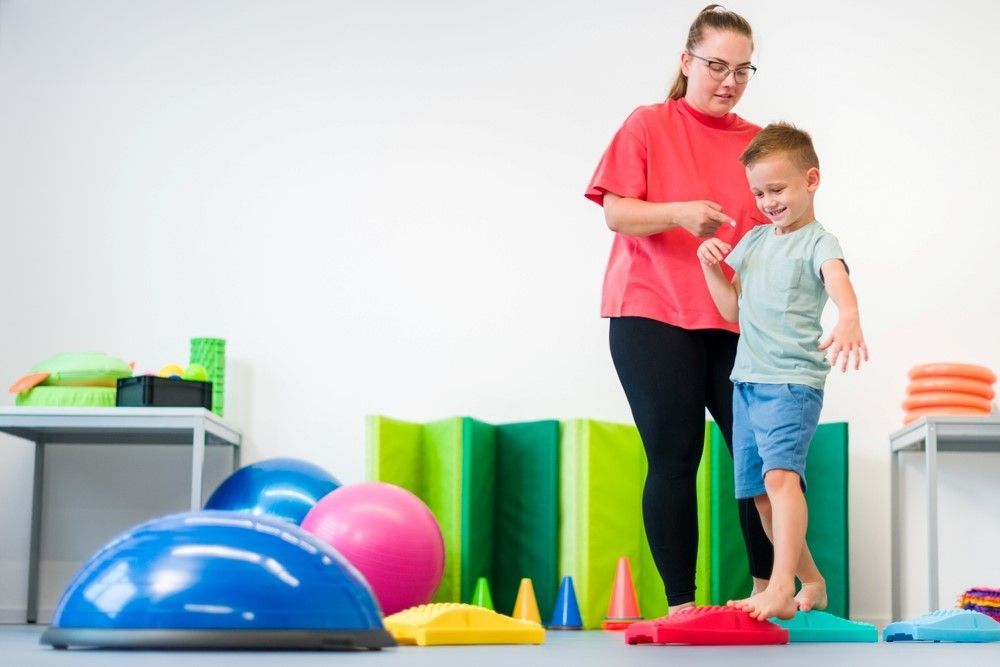How Home Health Services Help Children with Cerebral Palsy Thrive
Caring for children with CP (cerebral palsy) is a journey filled with both challenges and deeply rewarding moments. CP affects muscle tone, coordination, and motor skills due to brain damage occurring before, during, or shortly after birth. These children often require consistent medical attention, physical and occupational therapies, feeding support, and mobility assistance—all of which can be physically and emotionally demanding for families. When care is provided at home, however, the path becomes more manageable and more meaningful for everyone involved.
Caring for children with CP means addressing both complex clinical needs and personal milestones. Every day may involve medication schedules, feeding routines (sometimes with G-tubes), toileting care, mobility assistance with wheelchairs or walkers, and monitoring of assistive technology or breathing equipment. Hospital visits can be exhausting, requiring hours of planning, transportation, and waiting. In-home pediatric nursing services eliminate much of this burden by delivering compassionate, professional care directly to a child’s familiar environment.
Daily Routines Made Easier with In-Home Nursing Support
Children living with CP benefit from the continuity and comfort of care that occurs in the home. RNs and LPNs play a critical role in reinforcing stability and health through consistent routines. Medication management becomes more precise when handled by a trained nurse in a controlled setting. Feeding, mobility, and hygiene needs are met with patience and care. The result is a less chaotic daily life for the child and greater peace of mind for the family.
For many children with CP, progress depends on routine. Small victories like completing range-of-motion exercises, improving oral feeding tolerance, or staying free from infections require sustained support. Having care at home makes it easier to maintain this progress without the disruption of frequent clinic or hospital visits. Plus, children tend to respond more positively to care when it happens in a place where they feel safe and comfortable.

The Emotional and Practical Advantages of Caring for Children with CP
Beyond the clinical benefits, there’s something deeply restorative about home. Children with CP, like all children, need emotional security to thrive. Receiving care in a familiar space, surrounded by toys, siblings, pets, and a consistent caregiver, nurtures their well-being. It minimizes the trauma or anxiety that often accompanies hospital settings and medical equipment.
Families also experience relief. The stress of coordinating transportation, childcare for siblings, and time off work significantly decreases. Home nursing services allow caregivers to redirect their energy toward bonding, play, and quality time rather than logistics and crisis management. Caring for children with CP at home creates a more holistic kind of wellness that encompasses emotional, physical, and relational health.
Building Stronger Bonds Between Children and Caregivers
Another powerful benefit of in-home services is the depth of the relationship that forms between a child and their assigned nurse or therapist. In a hospital or clinic, care often rotates among providers. At home, however, the presence of consistent, compassionate professionals builds trust and familiarity. Over time, children feel more comfortable expressing themselves, and caregivers become more attuned to each child's unique personality and needs.
This bond allows home nurses to anticipate challenges and celebrate small wins more meaningfully. Whether it's noticing early signs of illness, encouraging a new skill, or simply offering a reassuring smile, the personalized care provided in a home setting fosters growth and resilience. In many ways, the nurse becomes an extension of the family, someone who walks alongside them in the journey of caring for children with CP.
Supporting Parents with Guidance and Reassurance
Parents of children with CP often feel isolated or overwhelmed by the demands of their child’s care. Home nurses can provide not only medical assistance but also emotional encouragement. They teach families how to use medical equipment, help create sustainable care routines, and answer questions that might otherwise go unasked in busy clinical settings. This educational aspect empowers parents and caregivers, giving them confidence in their ability to care for their child.

Emotional support is just as essential. Knowing that a professional is available, even part-time, can lift an enormous weight off a parent’s shoulders. It affirms that they’re not alone in advocating for their child’s quality of life. Home care professionals become trusted partners, offering expertise and a listening ear during both good days and challenging ones.
Specialized Home Health Services Make a Lasting Impact
Pediatric home health services designed for children with special needs require both technical skill and extraordinary compassion. In-home RNs and LPNs must understand the unique care protocols for CP while also adapting to each child’s individual rhythms. Physical and occupational therapy providers often work alongside nurses to ensure a well-rounded support system that encourages both comfort and progress.
Caring for children with CP also means planning for long-term developmental and health milestones. Nurses and therapists who see the child regularly at home are in a better position to notice changes and adapt care accordingly. This proactive approach can prevent setbacks and enhance the child’s potential for independence and participation in daily life.
Help Your Child Thrive with CritiCare
At CritiCare, we aim to deliver this level of personalized, in-home support through our pediatric home care and nursing services. Our team is trained to meet complex medical needs while creating a nurturing and joyful environment for the children we serve. We believe that every child deserves the chance to grow in a place where they are known, loved, and celebrated.
Children and adults with CP face daily obstacles, but with the right support, they can also experience incredible growth and fulfillment. The power of home-based care lies not only in the clinical outcomes but in the warmth, connection, and dignity it brings. Families who choose this path often find not just relief, but renewed strength.
To learn how we can support your family or refer a child for pediatric services, contact us today.












